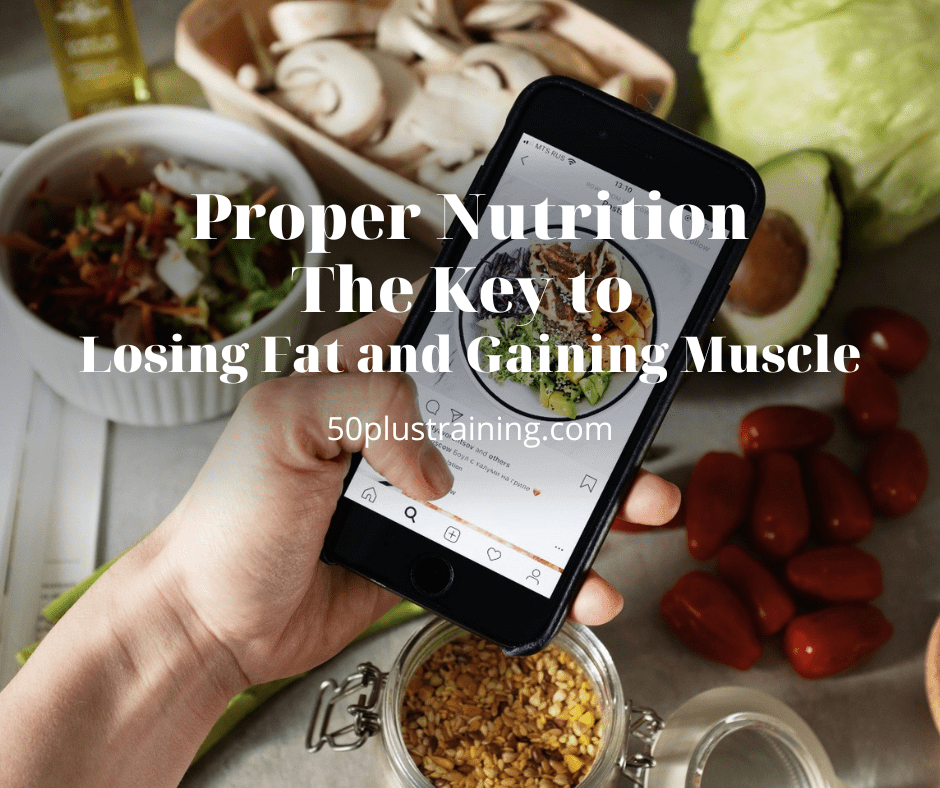At 50PlusTraining, we understand that proper nutrition is the foundation for achieving your fitness goals—whether you’re looking to losing fat or build muscle. However, the nutritional approach for each of these goals differs, and finding the right balance is key to ensuring long-term success. Here’s a comprehensive guide to help you navigate the nutritional landscape for fat loss and muscle gain, tailored to individuals over 50.

Understanding Your Goals
Losing Fat
The primary strategy for fat loss is creating a calorie deficit, which means consuming fewer calories than your body burns throughout the day. However, it’s essential to approach this safely and sustainably by focusing on nutrient-dense foods that fuel your body, rather than depriving it.
Gaining Muscle
To build muscle, you need a calorie surplus—eating more calories than you burn. This doesn’t mean consuming empty calories; instead, it’s about focusing on nutrient-rich foods that support muscle growth and recovery, ensuring you’re building lean muscle, not just adding weight.
Macronutrients: Your Body’s Building Blocks
Achieving a balanced intake of macronutrients (proteins, carbohydrates, and fats) is crucial for both fat loss and muscle gain. Here’s how they should be tailored to your specific goals:
1. Protein
- For Fat Loss: High protein intake is important to preserve muscle mass during weight loss. Lean sources like chicken, fish, legumes, and dairy are ideal. Aim for 1.2 to 1.6 grams of protein per kilogram of body weight.
- For Muscle Gain: Protein is critical for repairing and building muscle. For muscle gain, aim for 1.6 to 2.2 grams of protein per kilogram of body weight from high-quality sources like eggs, fish, and lean meats.
2. Carbohydrates
- For Fat Loss: While it may be tempting to reduce carbs, they provide essential energy, especially for workouts. Focus on complex carbohydrates like whole grains, vegetables, and fruits. A moderate intake helps fuel your body while keeping you in a calorie deficit.
- For Muscle Gain: Carbohydrates are key to fueling intense training. For muscle gain, increase your intake of whole grains, fruits, and starchy vegetables to support workout energy and muscle recovery.
3. Fats
- For Fat Loss: Healthy fats, such as those from avocados, nuts, and olive oil, are essential for feeling full and satisfied. However, since fats are calorie-dense, portion control is important. Aim for 20-30% of your daily calories from healthy fats.
- For Muscle Gain: Fats are necessary for hormone production, which can support muscle growth. Include fatty fish, nuts, and oils in your diet to meet these needs.
Meal Timing and Frequency
For Fat Loss
Eating smaller, more frequent meals can help control hunger and stabilize blood sugar levels. Incorporating a balance of macronutrients into each meal ensures you feel full longer and maintain a healthy metabolism. Focus on nutrient-dense foods and avoid skipping meals.
For Muscle Gain
For muscle growth, meal timing becomes important. Aim to consume protein-rich meals or snacks post-workout to maximize muscle recovery. Spread your protein intake throughout the day to ensure your muscles are consistently supported during the repair process.
Hydration
Staying hydrated is critical, no matter your goal. Water aids digestion, nutrient absorption, and recovery, making it an essential part of any fitness journey. Drink at least 8-10 cups of water daily, and increase this intake if you’re engaging in strenuous physical activity.
Supplements: A Supportive Boost
While whole foods should be your main source of nutrients, some supplements can aid in fat loss or muscle gain:
- For Fat Loss: Consider using protein powders to meet your protein goals, and supplements like green tea extract may help boost metabolism.
- For Muscle Gain: Supplements such as creatine and branched-chain amino acids (BCAAs) can enhance muscle recovery and support strength-building efforts.
Why Nutrition Matters Over 50
As we age, our metabolism slows, and maintaining muscle mass becomes more challenging. The combination of proper nutrition and a tailored exercise program can make a significant difference in how your body looks and feels.
At 50PlusTraining, we understand the unique nutritional needs of individuals over 50. Whether you’re aiming to lose fat, gain muscle, or both, we provide guidance to ensure you’re eating the right foods for your goals. Our training programs are designed to complement your nutritional strategy, helping you achieve lasting results.
Conclusion
Proper nutrition is the key to unlocking your fitness goals, whether you’re working to lose fat or build muscle. Tailoring your macronutrient intake, understanding your caloric needs, and focusing on whole, nutrient-dense foods will set you up for success.
Consistency is key—small, sustainable changes over time will yield big results. At 50PlusTraining, we’re here to guide you every step of the way. Schedule a call today to learn how we can help you achieve your fitness goals with a personalized nutrition and training plan.
Contact Us Today!
- Website: 50PlusTraining.com
- Phone: 914-552-1179
- Email: luis@50plustraining.com
- Location: Yorktown, NY
Get started with 2 FREE trial sessions! Let us help you reach your fitness potential today.
